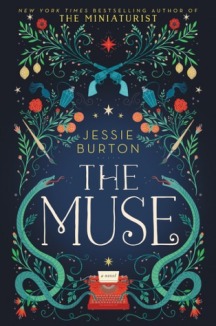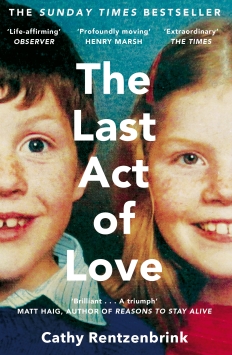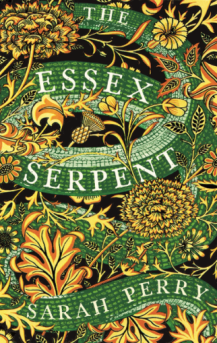For the first year since records began, I’m well ahead with one of my reading resolutions, having read 20 books so far in 2017. Here’s the first of two posts summarising my thoughts.
 The difficult second novel?
The difficult second novel?
I failed to fall under the spell of Jessie Burton’s super-selling debut The Miniaturist, feeling that it was an awkward series of gestures towards a more magical, interesting take on a familiar historical setting, ultimately leaving the reader unsatisfied. Funnily enough, reading Burton’s second novel, The Muse, has made me understand better why so many readers were captivated by The Miniaturist. Burton is an excellent storyteller, and her prose is totally absorbing. The Muse also picks up a pretty familiar historical novel plot; it switches between London in 1967 and Spain in 1936, linking the two time periods with a mysterious painting. The 1936 sections, while well-told, and vivid in their descriptions of rural Andalusia, feel plodding, and none of the cast really come to life. However, Odelle Bastien, our first-person narrator in 1967, who has been living in London for five years but grew up in Trinidad, is genuinely captivating, and lifts the entire novel. Burton’s musings on being a female artist are obviously drawn from her own recent experience, and are refreshingly different from the usual take on creation. Odelle’s two versions of English – the RP she learnt at school and uses in public, and the vernacular she slips into with her Trinidadian friend Cynthia – also enrich her characterisation. It’s a shame, actually, that Burton didn’t trust Odelle’s voice more, because the novel ends with an odd Afterword that spells out not only the twists and turns of the plot, but the psychological lessons that Odelle has learnt (‘As we looked at the painting… in its uniqueness, I read multiple stories. Through its technical brushstrokes, I experienced metaphysical sensations.’). I often feel that the idea that a writer should ‘tell, not show’ is too rigid, and the opening pages of The Muse are a fantastic example of good telling, but this conclusion made me feel that Burton was trying to tie up this otherwise thought-provoking novel too tidily.
 Brain surgeons and patients
Brain surgeons and patients
Cathy Rentzenbrink’s memoir The Last Act of Love, about the illness and death of her brother, Matty, after a head injury, deserves all the attention it’s been getting; it’s genuinely heartbreaking. I read it at the beginning of January and there’s a passage in the Afterword that has haunted me ever since. Rentzenbrink deals so beautifully both with the genuine pain of what-ifs and the way we have to try and square with them. Here it is in full.
I was talking at an event in Bristol about how, possibly because I read too many novels, I often feel I’m stuck in the wrong narrative… I quite often feel that not only am I a character in a book, but also that there’s a parallel universe out there – in life or on a shelf – where an undamaged version of me is living a joyous life.
Someone in that Bristol audience asked if I ever considered whether life could have been worse, that perhaps I am in some way a stronger person because of Matty’s accident.
“Oh,” I said. “You see, in the other universe – the one that was taken away from me – my brother is a brain surgeon rather than being operated on by one; I’ve already written lots of books; our children are friends…”
I couldn’t carry on. The thought of the little cousins my son might have had was too painful. Suddenly I was desolate… On the train home… I realised that most of what I have to do now is about committing to the storyline I’m in, rather than continuing to pine for the lost narrative.
Rentzenbrink’s wish that ‘my brother is a brain surgeon rather than being operated on by one’ reflects Paul Kalanithi’s thoughts in his equally moving posthumous memoir, When Breath Becomes Air. Having spent his life in brain surgery, he was diagnosed with advanced lung cancer in his mid-thirties, and found himself having to negotiate this very transition from doctor to patient. Kalanithi’s stunning conclusion to his book has already been widely shared on social media, but if you haven’t read it, you really must.
After so much incredible writing about illness, I found that neurosurgeon Henry Marsh’s follow-up to his excellent Do No Harm, Admissions (out May 2017), fell a little flat. Marsh is a perfectly competent writer, and I zipped through Admissions, but as he strays away from brain surgery and into more general musings on ageing, I found his reflections less thought-provoking than the emotion channelled into Rentzenbrink’s and Kalanithi’s memoirs. Nevertheless, he’s good on privatised medicine, providing an arresting image of a group of homeless people clustered outside the huge Texas Medical Center with its skyline-high series of blazing glass windows.
 The Wellcome Book Prize longlist
The Wellcome Book Prize longlist
This is one of my favourite book prizes, partly because, as the above indicates, I’m fascinated by medical themes, and partly because it mixes non-fiction and fiction (I love the fact that the new Jhalak Prize is doing the same). Kalanithi is on the longlist, and I’ve also read two of the other candidates. Sarah Perry’s The Essex Serpent seems to have received near-universal praise. For me, it was a novel that I gradually sunk into, rather than being won over from the start. Our heroine, Cora, is recently widowed, and seeking to recover her life after the blackness of her marriage. Unconventional to the core, she takes her maid, Martha, with her to the Essex coast after she hears reports of a mysterious serpent, which she hopes might be a relic of an older geological age. Luke, an experimental young doctor, secretly pines after Cora, but after she meets the local vicar, William Ransome, she is swept up in emotions of her own. My major problem with The Essex Serpent was Cora herself; I have simply read too many books about rebellious Victorian women, and I am always more interested in how characters in historical novels negotiate and respond to convention, rather than simply abandoning it. Martha’s working-class socialism felt a rather fresher way to explore resistance, and I found myself wanting to hear more about her and about Luke, rather than the rehash of evolutionary debates playing out between William and Cora. However, The Essex Serpent is seductive; Perry’s writing is beautifully captivating. By the final third, I was gripped.
Finally, Sarah Moss’s The Tidal Zone was always going to be a hit for me; I’ve read all of her novels, as well as her non-fiction Names for the Sea and The Frozen Ship. It focuses on Adam, a part-time history lecturer and full-time dad, after his daughter Miriam collapses mysteriously at school. As Adam’s wife, Emma, is a GP, it picks up on the theme of suddenly becoming a patient/patient’s relative when you are used to possessing the authority of medical expertise, but this being Moss, it thinks about so many other interesting subjects, including childhood, parenting, architecture and war. Moss’s work fascinates me because it always feels so flawed, working despite the often quite large problems I have with her plots or characters; however, The Tidal Zone is an exception. I think it’s wonderful just the way it is.
I felt like you about Cora – I know she wasn’t meant to irritate me as much as she did – and isn’t The Tidal Zone marvelous. What a book.
LikeLike
Yes, she got on my nerves more than was probably fair. I did really like her in the moment near the end where she acknowledges her mistakes re Luke, and would have probably got on better with her if we’d had more of this sort of thing earlier.
LikeLiked by 1 person
Same!
LikeLiked by 1 person
Pingback: Baileys Prize Shortlist Round-Up, #1 | Laura Tisdall
Pingback: 2017 in Books: Commendations and Disappointments | Laura Tisdall
Pingback: My Top Ten Books of 2017 | Laura Tisdall
Pingback: My Top Ten Books of 2018 | Laura Tisdall
Pingback: Wellcome Book Prize 10th Anniversary Blog Tour: The Two Kinds of Decay by Sarah Manguso | Laura Tisdall
Pingback: Women’s Prize for Fiction Shortlist 2019 | Laura Tisdall
Pingback: The year of the doll | Laura Tisdall
Pingback: Some Upcoming September Releases | Laura Tisdall
Great reviews! I really liked The Essex Serpent, and I know realise that I would have also liked to see more of Cora and Luke’s relationship or even more her marriage. Having said all that, I now think if it were not for Perry’s beautiful language and expression, this book would have been much worse.
LikeLiked by 1 person
Absolutely, it’s so well-written. I wasn’t a fan of Cora or Luke so the less of them the better!
LikeLiked by 1 person
*William – I did like Luke.
LikeLiked by 1 person
Pingback: John Murray Proof Party @ Durham Book Festival: Reading Report | Laura Tisdall
Pingback: 20 Books of Summer, #13: Summerwater | Laura Tisdall
Pingback: #NovellasInNovember: The Fell by Sarah Moss | Laura Tisdall
Pingback: September Superlatives, Part 1 | Laura Tisdall
Pingback: 2024 Reading Plans | Laura Tisdall